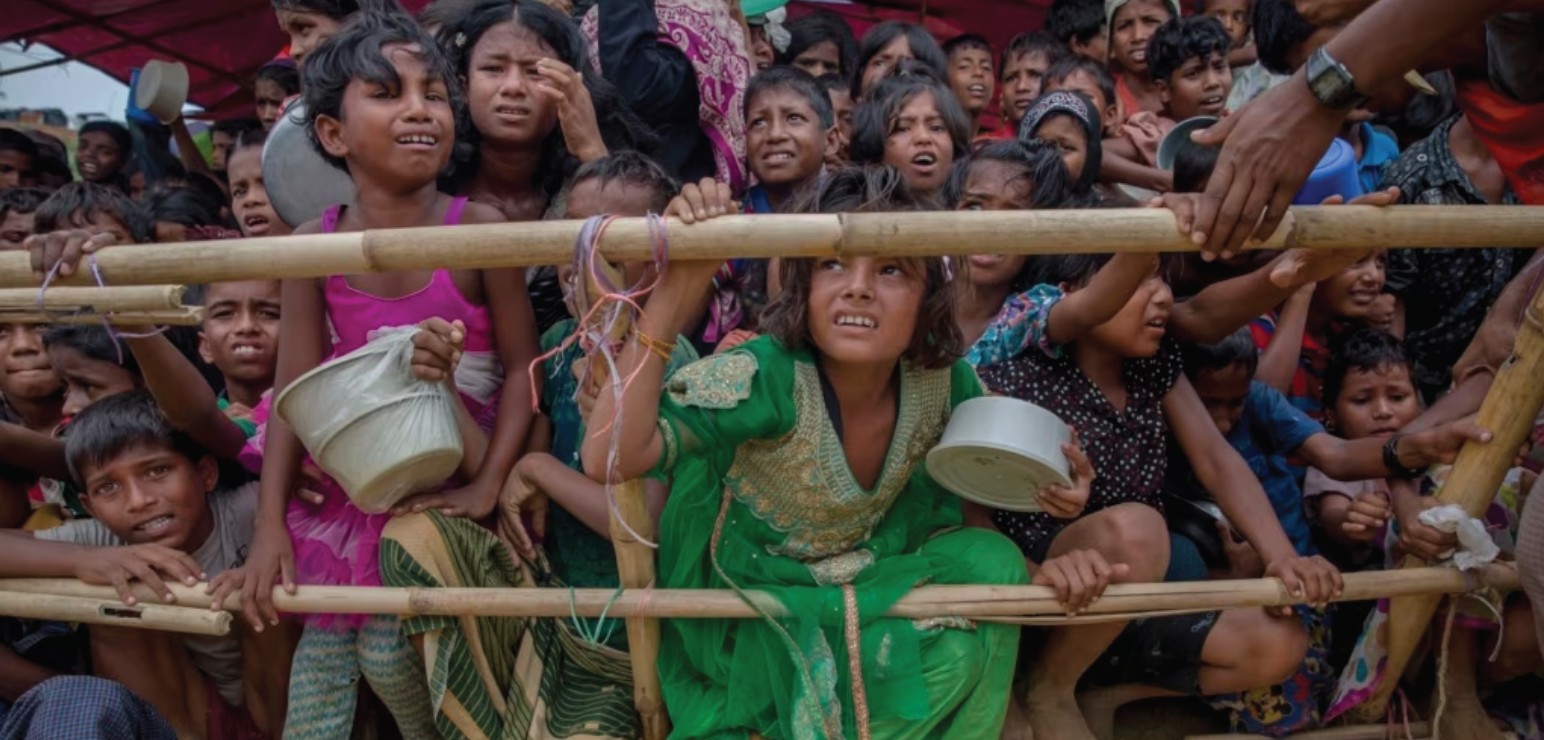Myanmar is one of two neighbours of Bangladesh and no enmity exists between them, except for the Rohingya crisis which was orchestrated and executed in Myanmar. The Rohingya of Arakan (presently Rakhine) have been living in Rakhine since the 7th – 8th century and was indigenized well before the independence of Burma in 1948. They are a mixed people of Indian origin, Arabs, Persians, Afghans, and Central Asians.
In the 1947 Constitution, Rohingya were given a ‘National Registration Certificate’ with full legal and voting rights. In 1954 Prime Minister of Myanmar stated in a public speech: “Rohingya has the equal status of nationality with Kachin, Kayah, Karen, Mon, Rakhine and Shan”. During 1948-61, 4 to 6 Rohingya were elected as members of the parliament. However, the 1982 Citizenship Act denied the citizenship rights of Rohingya and identified them as ‘foreigners’. Myanmar government recognizes other 135 ethnic minorities except the “Rohingya”, though they exercised their franchise rights in all national and local elections till the general election in 2010. Their voting rights were revoked in March 2015. Meanwhile, their identity card was also annulled.
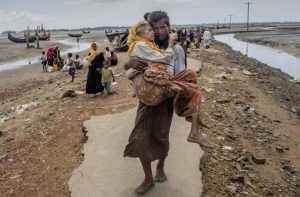
Such systematic disenfranchisement and frequent indiscriminate persecutions against Rohingyas by successive Governments of Myanmar since the 1960s led to their continued forced displacement into Bangladesh from the Rakhine State of Myanmar. For the last many years, Rohingya have been one of the most persecuted minorities in the world. Mass atrocities against the Rohingya in Myanmar took place in the late seventies and early nineties resulting in their exodus into Bangladesh. However, in 1978, repatriated nearly 200,000 Rohingya, and again in 1992, out of 253,000 Rohingya, Myanmar took back over 230,000 with honor and dignity through dialogue and discussion.
Approximately 2.65 million Rohingya are dispersed in temporary shelters across 17 countries globally, with about half of them seeking refuge in Bangladesh. The influx of around 730,000 Rohingya to Bangladesh occurred in 2017 following a clearance operation by the Myanmar military. Presently, only about 600,000 Rohingya remain in Myanmar, residing in internment camps or similar conditions.
Despite challenges, Prime Minister Sheikh Hasina of Bangladesh made a courageous decision in 2017 to open the country’s borders, providing temporary shelter to over 1.2 million Rohingya in Cox’s Bazar, the world’s largest refugee camp. Bangladesh, though not a signatory of the 1951 UN Refugee Convention, is both sheltering and financially supporting the Rohingya, spending approximately USD 1.69 billion in 2022 for humanitarian operations.
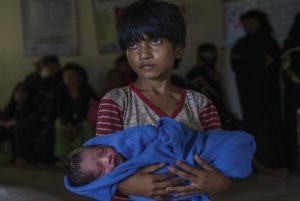
The Rohingya crisis has strained infrastructure, water supply, agricultural outputs, and the livelihood of the host community in Bangladesh, particularly in Cox’s Bazar. The demographic imbalance created by the Rohingya has led to tensions, increased unemployment, and environmental issues like deforestation, soil erosion, and water pollution.
Funding for Rohingya humanitarian aid has seen a decline, with the Joint Response Plan of 2022 and JRP 2023 facing challenges to secure the required amount. The funding gap has led to reductions, including a decrease in the monthly food ration by WFP from $12 in December 2022 to $8 per person per month from June 2023.
With nearly 52% of the Rohingya population in Bangladesh being children and adolescents, the government emphasizes education. Learning activities, supported by UN agencies, are provided through around 6,000 learning centers following the Myanmar Curriculum. Skill development programs are also underway to enhance the Rohingya’s capacity for reintegration into society upon voluntary return.
Ensuring accountability for persecution is a priority, with Bangladesh supporting international efforts, including the ICJ case filed by the Gambia. However, funding challenges persist, with the OIC Fund at ICJ lacking support from certain countries.
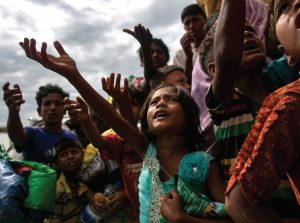
The permanent solution to the Rohingya crisis lies in safe, dignified, and sustainable repatriation to Rakhine. Bangladesh engages bilaterally, tri-laterally, and multilaterally for a permanent resolution. The international community is urged to support Bangladesh and encourage Myanmar to expedite repatriation.
Challenges to repatriation include Myanmar’s discriminatory policies, denial of atrocities, and the support it receives internationally. The Rohingya crisis, considered a political, humanitarian, and security challenge, necessitates addressing root causes, promoting sustainable development in Rakhine, and ensuring basic rights for the displaced persons upon return.
Safety and security are prime concerns, especially with armed conflicts in Rakhine. The presence of a large Rohingya population raises global security concerns, emphasizing the urgency for resolution. The international community is urged to mobilize initiatives and engagements in Rakhine while questioning its commitment to repatriation.
Despite the challenges, two successful repatriations occurred in 1978 and 1992, mostly through bilateral negotiations. The international community’s trade and investment relationships with Myanmar contribute to its resilience amid targeted sanctions, raising questions about the commitment to resolving the Rohingya crisis. Addressing root causes, promoting inclusive development, and providing essential services are emphasized for sustainable peace, stability, and democracy in Myanmar.
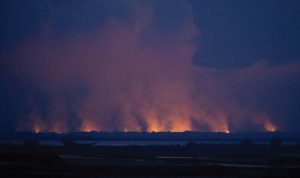
The ASEAN has an important responsibility and resolution to this crisis through the early and sustainable return of the displaced Myanmar nationals to their country should remain high on the agenda of the ASEAN. As fellow members, ASEAN should step up efforts in confidence-building measures in Myanmar that would encourage the Rohingya to return to their own homeland.
To decongest and de-risk the overcrowded camps in Cox’s Bazar, we have developed Bhasan Char, an island covering an area of 13,000 acres in the South of the country. We spent over US$ 350 million from our own budget for building proper infrastructure and better amenities than Cox’s Bazar to temporarily relocate about 100,000 of the camp population. Until now, we have relocated around 32,000 of these displaced persons from the camps in Cox’s Bazar to Bhasan Char ensuring compliance of the principle of voluntariness.
With its suitable terrain, and abundance of empty space, Bhasan Char provides better scopes for the Rohingyas to pursue livelihood opportunities. But it will not be possible outside the camps in Cox’s Bazar due to the economic necessities of the host community and possibility of a conflicting situation between the Rohingyas and the host community.
Bangladesh has joined the Resettlement in third countries initiative as an interim intervention. Resettlement of 1.2 million Rohingyas and their around 30,000 newborn children every year is not a feasible proposition. Preferences of the hosting countries are always determined by their domestic priorities and other global crises. Till today, as per estimate USA and Canada have relocated only 62 persons in the last six years.
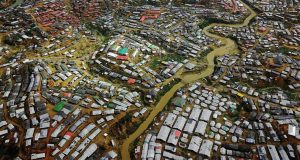
Local integration of the Rohingyas can never be an option for one of the most densely populated and climate-vulnerable countries like Bangladesh. In Bangladesh, every year around 650,000 people are uprooted from their sweet homes and traditional jobs due to erratic climate change, river erosion and the like. For global warming one fifth of our land mass is estimated to be lost by 2050 resulting in the displacement of 20-25 million people. Around 20 million Bangladeshi expatriates live and work across the world and contribute to the economy. Furthermore, the idea of integration of Rohingyas in Bangladesh would promote Myanmar’s false claim that Rohingyas were inhabitants of Bangladesh. In a way it would justify their mass atrocities run on Rohingyas.
Promotion of third-country resettlement and integration in Bangladesh can work as a pull factor for the around 600,000 Rohingyas now living in Rakhine State.
The Hon’ble Prime Minister Sheikh Hasina proposed to the international community at a side event on Rohingya during the 78th UN General Assembly in New York to solve the Rohingya crisis:
a) Remain seized of the matter and continue to keep this issue on the top of our agenda;
b) Continue our humanitarian efforts to ensure the sustenance of these ill-fated and hapless human beings;
c) Pursue ongoing and available legal and multilateral mechanisms to ensure accountability of the perpetrators who committed persistent, systemic and systematic heinous atrocities against this ethnic minority;
d) Redouble our concerted efforts to ensure lasting solutions to this problem originated in Myanmar – among all options, voluntary repatriation is the most viable.
Written by-
Dr. A.K. Abdul Momen, MP
Hon’ble Foreign Minister, GoB
PhD & MBA (USA), MPA (Harvard), LLB, MA, BA (Hons), Dhaka University

